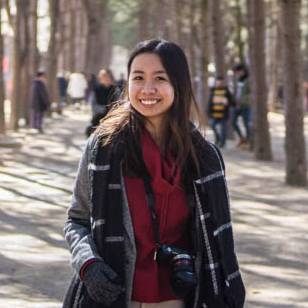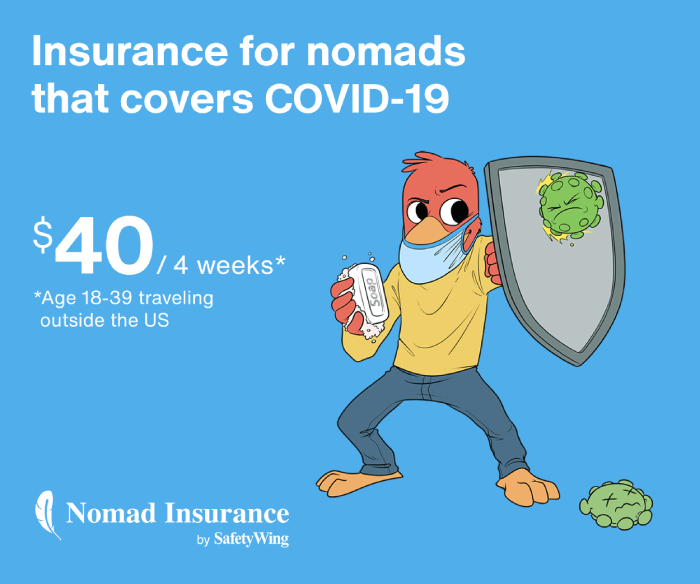It's true, Japan is expensive. In fact, it's one of the most expensive countries in Asia, next to Singapore and Hong Kong. Don't lose hope, as it's possible to travel to Japan on a budget with the help of airline promotions, hostels, advanced bookings and efficient planning.
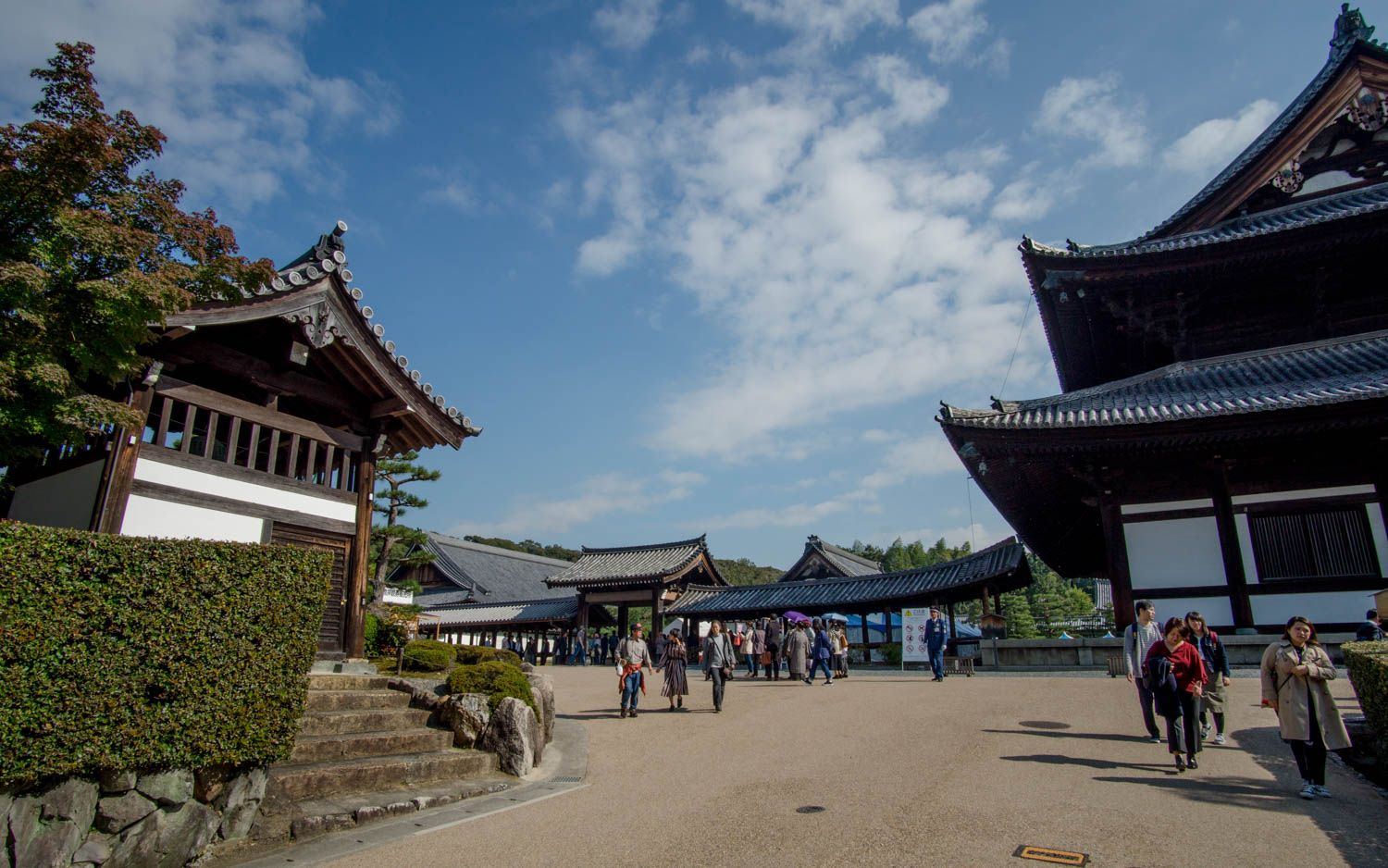
The best time to go to Japan
Japan is at its most beautiful in spring and autumn, especially for someone who grew up in a tropical country where it's summer all year round. It's important to decide which season you'd like to go, since your itinerary revolves around the best places to see in Japan during that season.

If you want to go during cherry blossom season in spring, March to April is typically the best time, but this is also peak season and gets very expensive. For me, it's worth it because it's so beautiful and surreal.
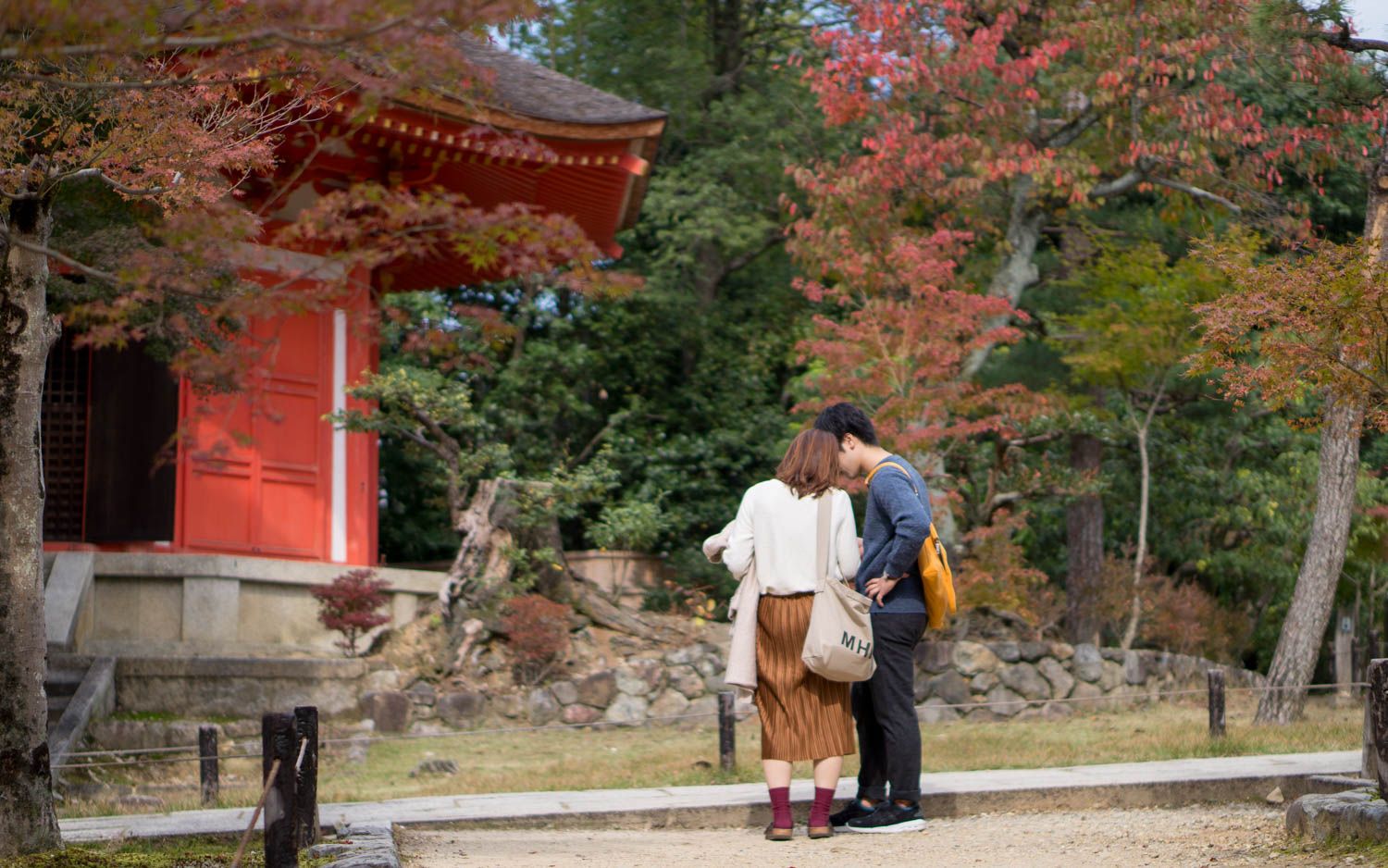
If you're on a budget, you should go in autumn season around September to November. Japan in the fall is almost as beautiful as Japan in cherry blossom season. Make sure to check the Japan fall foliage forecast.
Fall foliage season and cherry blossom full bloom times differ in each city. Take a look at forecasts to increase your chances of being in each city at their peak.
Let's go into the details.
How much does a week in Japan cost?
There are a lot of free tourist attractions in Japan, so your main expenses are going to be flights and transport within the country. I'm not a big foodie myself, so I was able to get by with mostly street food and convenience-store food, and sometimes a cheap restaurant.
I was able to visit Japan, and travel from Tokyo to Kyoto for just 600 USD (29, 500 PHP) including round-trip flights and visa from the Philippines.
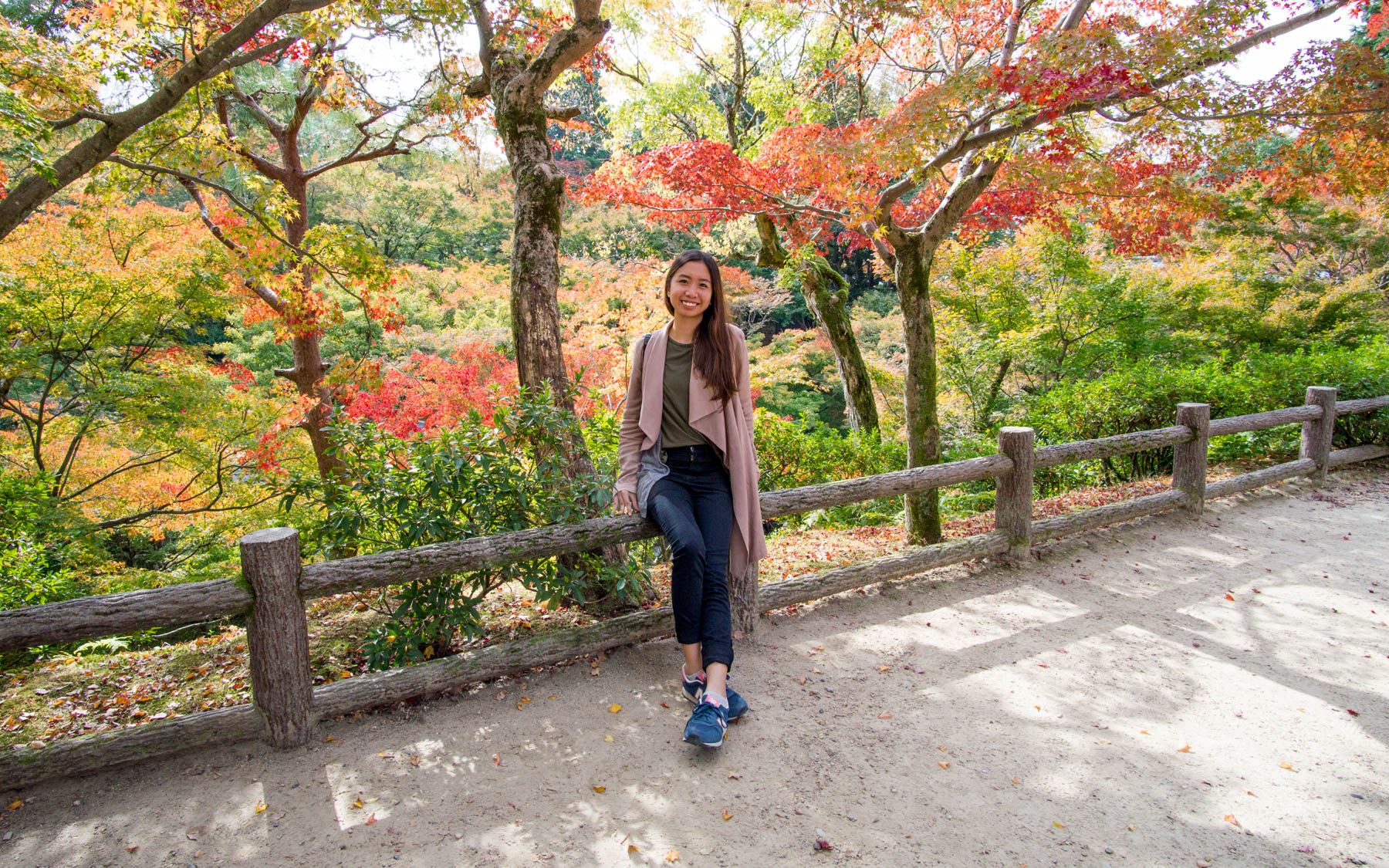
Since this is a budget itinerary, I'll go through how I spent 6 days in Japan in fall. You can do a similar itinerary for spring but it's going to be a lot more expensive.
What to Book Before Your Trip
- Visa (if you need one)
- Round-trip flights
- Sim card from Klook for mobile data
- Accommodation in Tokyo
- Accommodation in Kyoto
- Round-trip bus tickets from Tokyo to Kyoto
6-Day Itinerary for Japan in the Fall
In 6 days, we'll cover both Tokyo and Kyoto. This is a jam-packed itinerary where we fit as much as we can in just under a week. Prepare for lots of walking. 😄
Day 1: Arriving in Tokyo and walking around Shinjuku
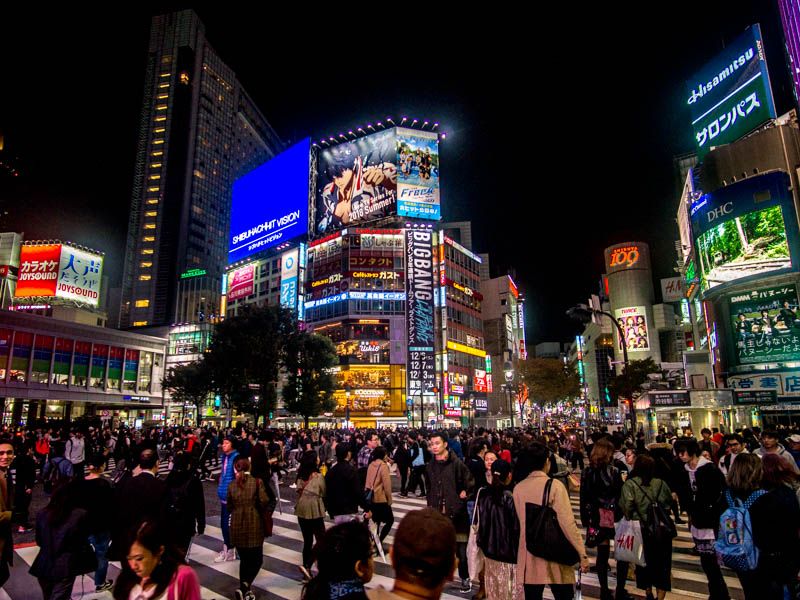
- Arrival at Narita International Airport
- Claimed sim card from Klook
- Narita Express to Shinjuku
- Hostel check-in
- Exploring Shinjuku
- Dinner at Ichiran Ramen
- Shopping at Don Quijote
- Shibuya Crossing
Day 2: Exploring free tourist attractions in Tokyo
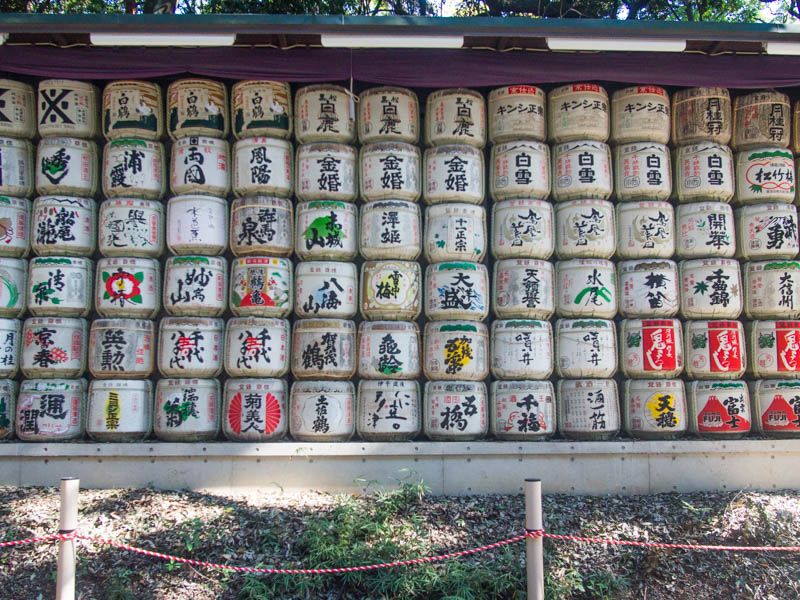
- Meiji Shrine
- Takeshita Street in Harajuku
- Rainbow Bridge
- Diver City (where the giant Gundam is located)
Day 3: Exploring Tokyo + Going to Kyoto in the evening

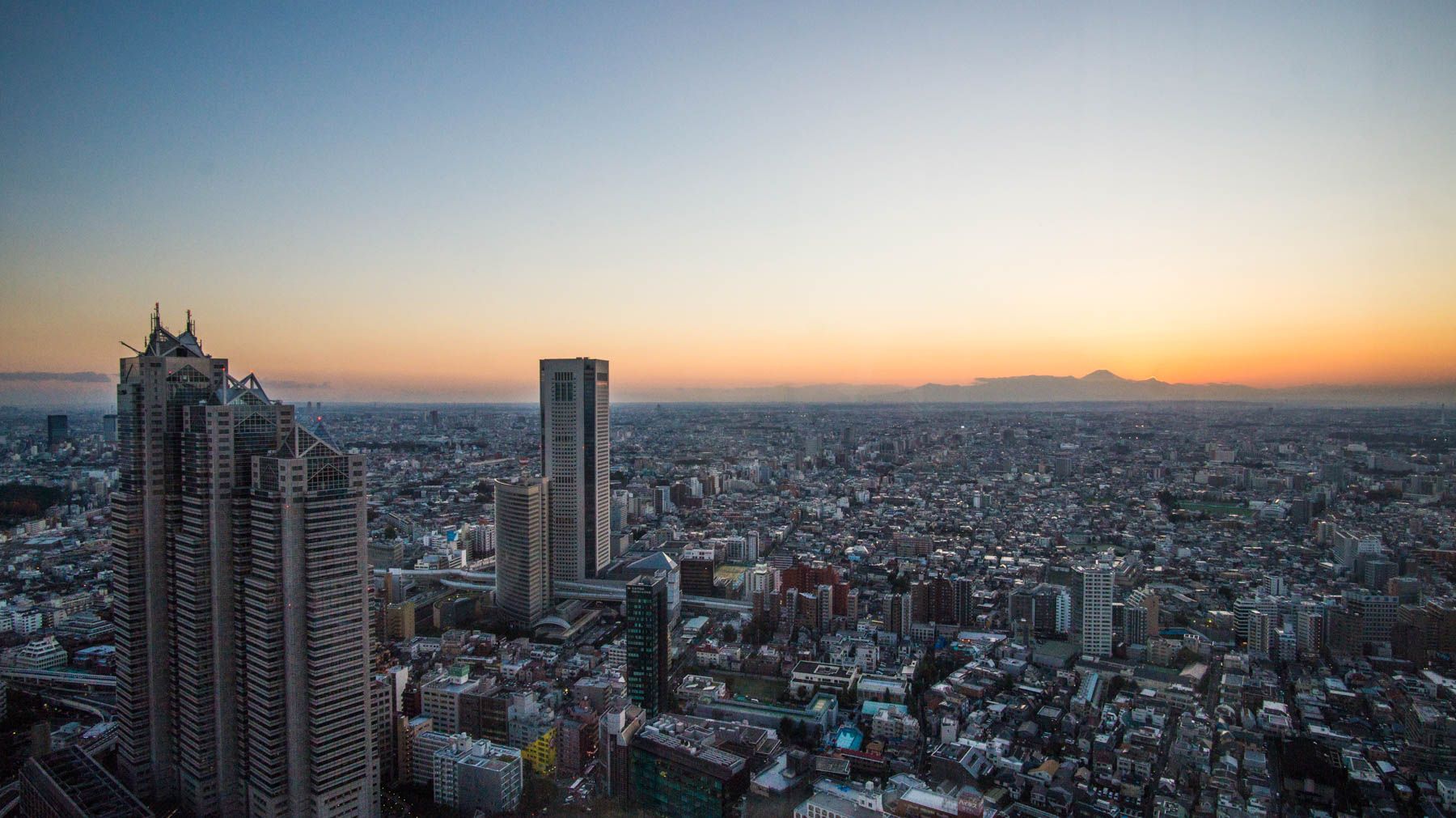
- Shinjuku Gyoen National Garden (200 JPY)
- Lunch at Fuunji Ramen
- Akihabara
- Tokyo Metropolitan Government Building
- Overnight bus to Kyoto
Day 4: Exploring Temples in Kyoto
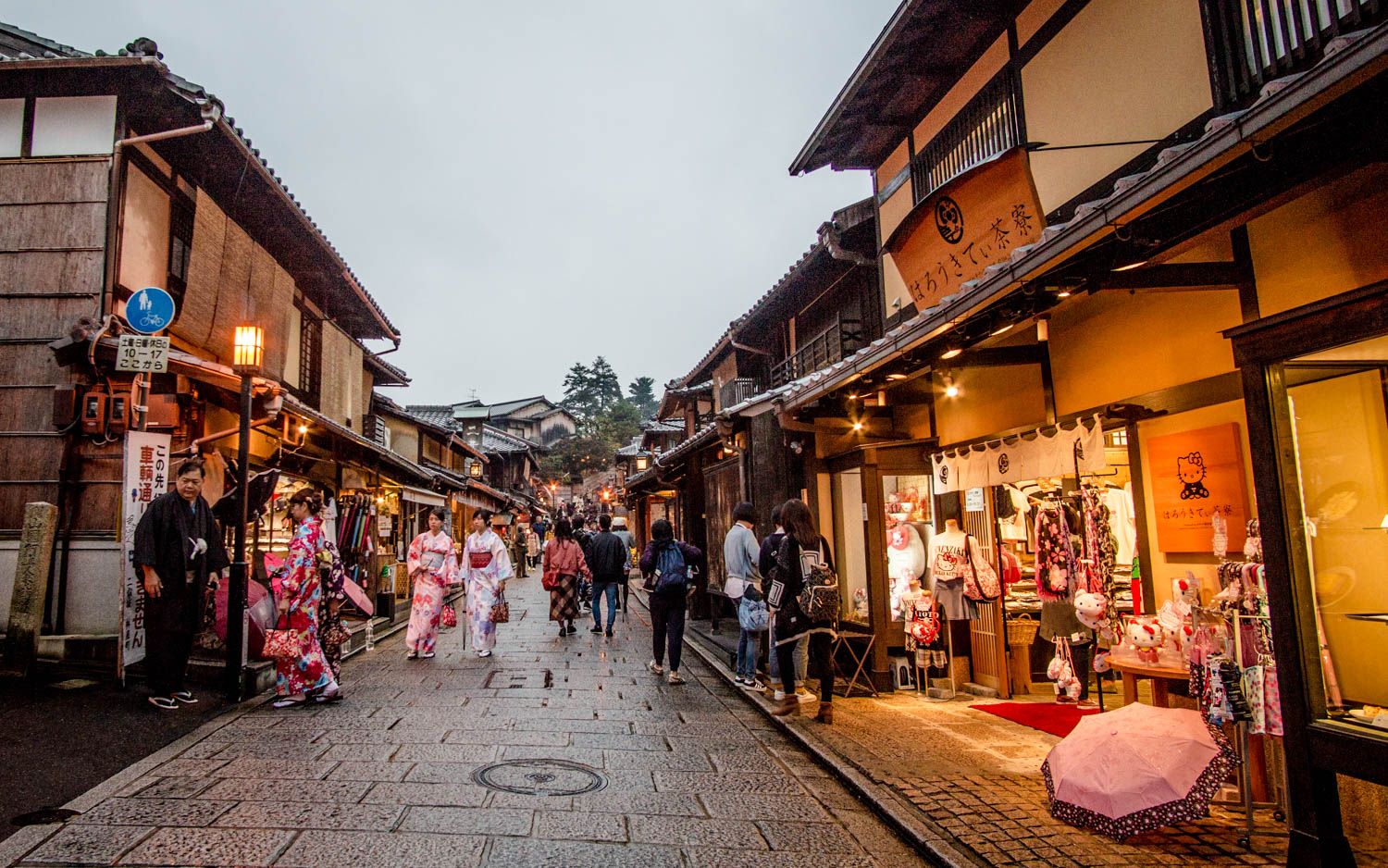
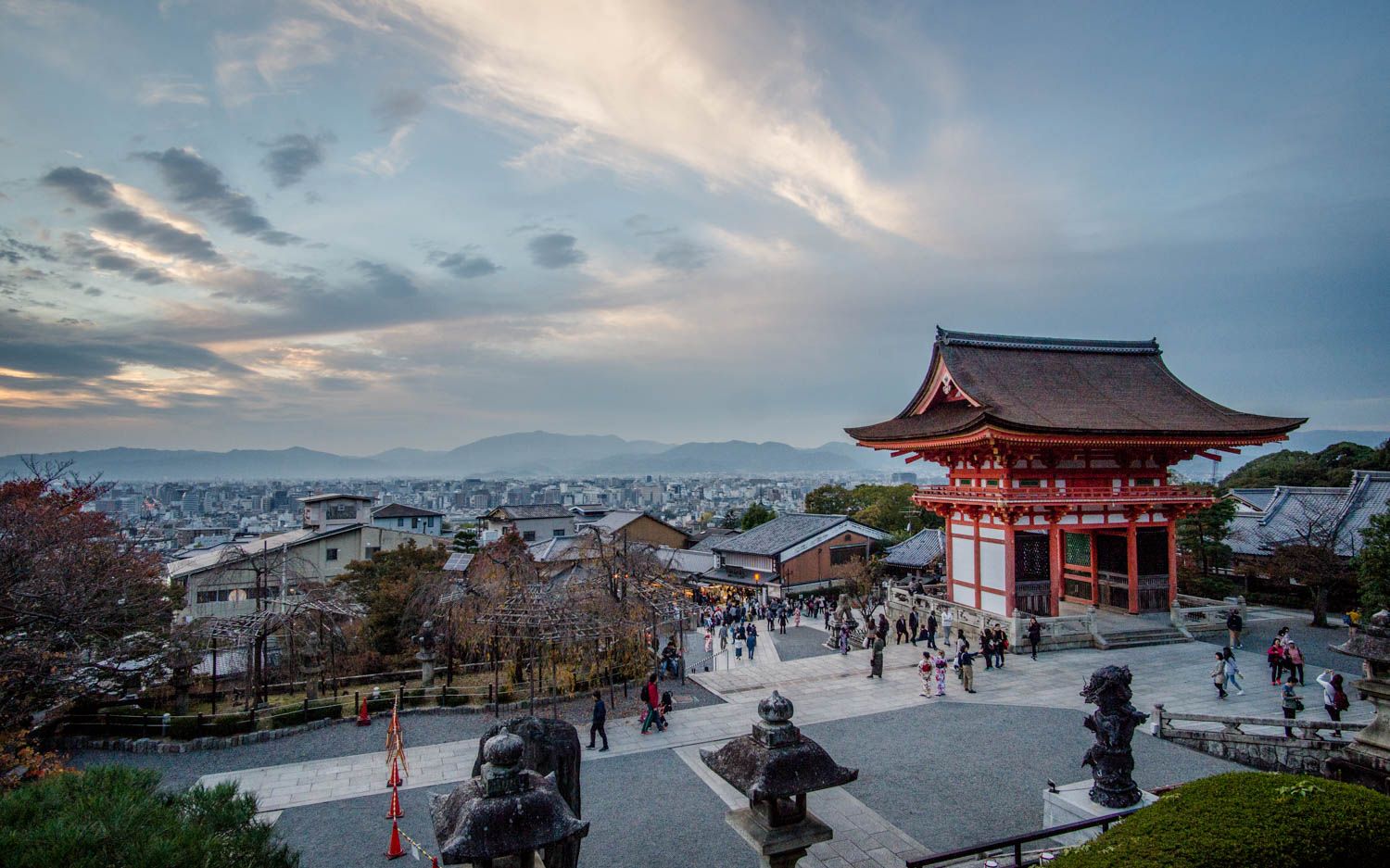
- Arrival in Kyoto
- Luggage storage at hostel
- Fushimi Inari Taisha (free)
- Tofukuji Temple (400 JPY)
- Eikando Temple (1000 JPY)
- Kiyomizu Temple (free)
- Gion (free)
- Yasaka Shrine (free)
Day 5: Exploring Kyoto + Going to Tokyo
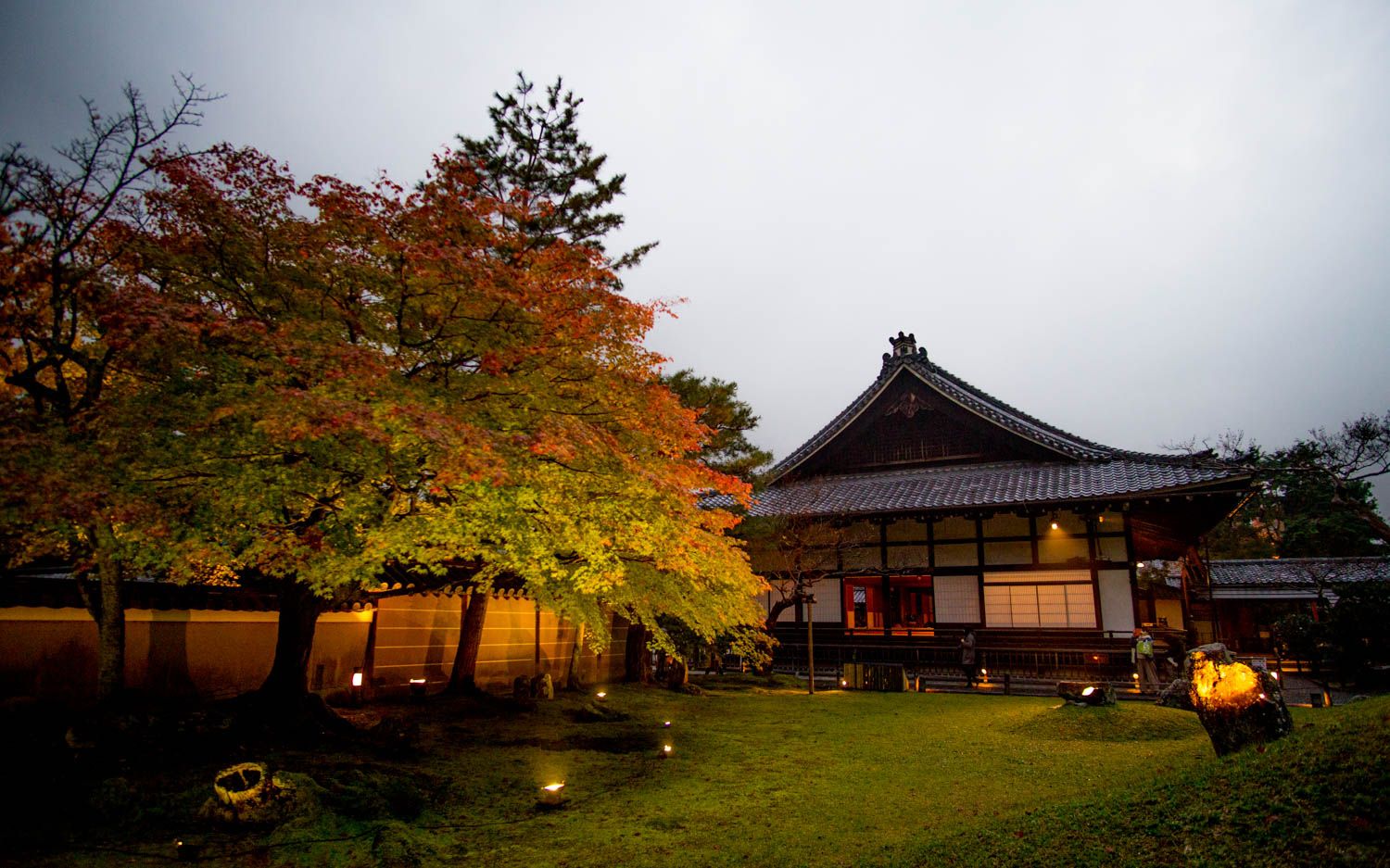
- Togetsukyo Bridge (free)
- Bamboo Forest (free)
- Tenryuji Temple (800 JPY)
- Nijo Castle (800 JPY)
- Kodaiji Temple for night illumination (800 JPY)
- Kyoto Starbucks near Kodaiji
- Overnight bus to Narita International Airport
Day 6: Arriving in Tokyo Airport + Return Flight
- Souvenir shopping at the airport mall
- Return flight
Breakdown of Expenses
These were my exact expenses when I did this exact itinerary.
| Item | Cost (PHP) |
|---|---|
| Round trip flights from Cebu to Narita Airport via Cebu Pacific | 1,648.00 |
| 15kg baggage allowance (PHP690 x 2) | 1,380.00 |
| Travel Tax | 1,620.00 |
| Terminal Fee | 750.00 |
| Visa (via Discovery Tour) | 1,000.00 |
| Birth certificate (visa requirement) | 350.00 |
| Bank certificate (visa requirement) | 150.00 |
| Round-trip overnight Tokyo – Kyoto bus tickets via Willer Express | 5,978.98 |
| Sim card from Klook (3GB for 1 week) | 696.00 |
| Tokyo accomodation for 2 nights at Tokyo Imano Hostel in Shinjuku | 3,364.48 |
| Kyoto accomodation for 1 night at Backpackers Hostel K’s House | 1,156.86 |
| Pocket money which includes transportation, food and entrance fees, excludes shopping and souvenirs for 23,520 JPY | 11,305.00 |
| Total in PHP | 29,399.32 |
| Total in USD | ~570.00 |
Tips for Budget Travelers
- Get a Pasmo/Suica card for trains, buses and stores. With this card, there’s no need to purchase train tickets or fumble for coins in the bus. And whatever’s left, use them all up at the airport.
- Get the Kyoto City Bus Pass. Kyoto buses are its main form of transportation. One ride costs 230 JPY. The bus pass gives you unlimited rides for the day for 500 JPY.
- Make the most of your trip. Don’t be one of those travelers who barely eat and never pay entrance fees. Sure, there are lots of free attractions, but the temples and gardens are absolutely amazing and worth it!
- Mix up your itinerary with popular tourist spots and lesser known spots. Some of the extremely popular ones were underwhelming for me and just too crowded, like Fushimi Inari Taisha and Arashiyama Bamboo Grove.
- Use up all your JPY coins because you probably can’t exchange them to your local currency when you get back.


